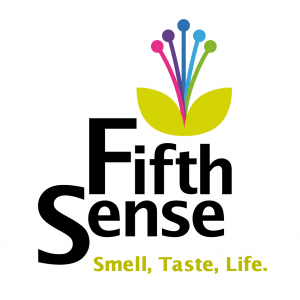This isn’t a question that gets asked very often. It is, however, one that the organisation I have established, Fifth Sense, the charity for smell and taste disorder sufferers, is starting to ask more and more.
The sense of smell is something that we take for granted. It is almost as if it is seen as a handy add-on to our sensory toolkit; sometimes useful, but oft-ignored.
The reality, however, is quite different. Our sense of smell plays a huge role in our lives; it profoundly influences our mood, memory and emotions, and our preferences when it comes to food – and partners. Think about how big a role that smell plays in intimacy; the smell of your partner’s hair, or skin. Our sense of smell connects us to the world around us, and to the people in it, in a way that carries a great deal of emotional resonance.
The lack of knowledge of this has created a problem for the many sufferers of olfactory disorders such as anosmia, the loss of the sense of smell. The majority of Fifth Sense members report that they find it nigh on impossible to get recognition that their condition can in any way cause them a problem, an attitude that extends from friends and family right through to the medical profession.
But how have we got to this point, where we have become so ignorant of what is one of only five tools with which we engage with the world? Well, I would argue that science itself has helped create this situation, whilst also being a major part of the solution.
It was during the Age of Enlightenment when smell started taking a back seat. Philosophers such as Kant put forward the idea that smell was a base, animal sense, inferior to sight and hearing. These two senses, allied to science, were essential to us in studying and better understanding the world around us, whilst the sense of smell could safely be dispensed with. And this attitude developed and prevailed.
As someone who has had anosmia since 2005, I know better than most just how important the sense of smell is to our quality of life and emotional wellbeing. Sight and hearing are incredibly important, and allow us to study and evaluate our world, but it is our sense of smell that allows us to really feel it.
Key to Fifth Sense’s objectives is educating society on the importance of smell, and the implications that olfactory disorders can have. It’s time for science to come to the aid of olfaction, and we must harness it to develop our understanding of the role and function of the sense of smell, and treatment for olfactory disorders.
So please take a moment to reflect that we possess five senses, with each one playing a uniquely important role in our lives, and consider: just what does your sense of smell mean to you?
Fifth Sense was established in 2012 by Duncan Boak, who lost his sense of smell as the result of a severe head injury in 2005. Fifth Sense has grown rapidly since then and is now the first charity supporting smell and taste disorder sufferers, providing a signpost to potential diagnosis and treatment, and playing a leading role in educating society on the huge role that the sense of smell plays in our lives. For full details of this project check out the Fifth Sense website.


My loss of sense of smell has not yet been diagnosed but it has already affected me in my daily life: from not being able to smell escaping gas at home anymore which is scarily dangerous, to never being able to walk anywhere inside or out and being able to interact tangibly with my personal world in that manner. It brings an inherent sadness to everything I do. It is like something is somehow just missing from that world which requires me to have to rely on another sense, my ‘smell memory’ to remember what that smell ‘used to be like’, in order to try to interact with that world. Smell therefore is something I really miss.
The inherent sadness – so well put, Sarah. I recognise that so much.
Smell to me is the most evocative of senses, a link with my past and all that has made me who I am. I miss, for instance, the smell of pine trees, the smell of the sea, the wonderful smell of onions and sausages outside the football stadium, the smell of onions and garlic in butter as I cook, the nose of my wine or whisky, wet leaves beneath my feet as I walk the countryside, my wife’s perfume or the smell of fireside smoke in her hair on a cold evening, spring flowers coming into bloom after my hard autumnal work in the garden. The list is endless and I miss them all.